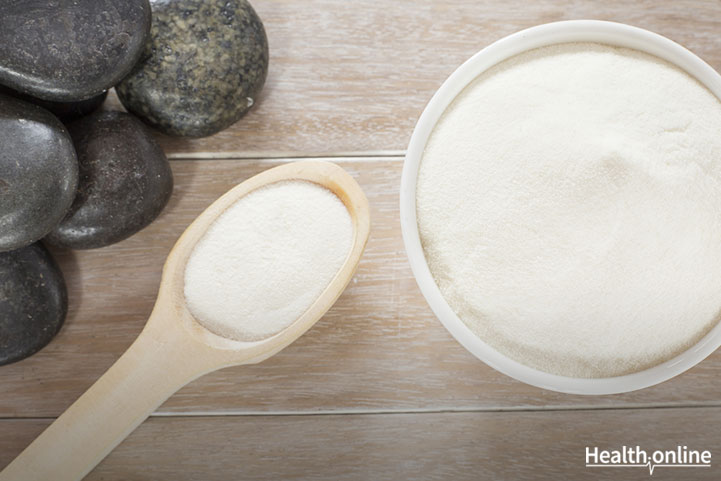
All You Need To Know About Collagen
Have you come across the word ‘Collagen’ while having no idea what it is? Then this article is for you. Collagen is the protein that you are made up of, but you have no idea about. Yes, collagen makes up most of your body structure, from the bones to the skin, and from the muscles to the tendons. Thus, it is crucial for you to know what collagen is, whether you have an adequate amount of it or not, what to do if you have collagen deficiency, and so on. Read on to learn everything you need to know.
Collagen forms the basic framework of the body
Have you ever noticed how every part of your body is interwoven seamlessly? What provides the framework that could be used as a scaffold to hold your body? Collagen, of course. It is collagen which is responsible for the structure of your body and its strength.
What is this collagen?
There are basically two types of collagen – exogenous and endogenous. Exogenous collagen is synthetic and is consumed through supplements. But the human race thrives on endogenous collagen, which is natural and synthesized in the body. Both have their distinct uses, but the deficiency of endogenous collagen leads to some diseases affecting the bones, joints, tendons, blood vessels, etc. These endogenous collagen disorders are mainly linked to genes and run in families.
Endogenous collagen is fibrous and accounts for one-third of the protein in the body. There are different types of them.
What’s the strength of a collagen?
Collagen in different parts of the body has different strengths. Some types of fibres of collagen (called fibrils) are even comparable to steel.
Functions of collagen
Here are the salient features and functions of collagen:
- It is mainly secreted by connective tissue cells.
- Extracellular matrix is made up of collagen that supports the tissues.
- It forms the middle fibrous layer of the skin.
- Helps in the replacement and restoration of dead skin cells.
- Protects inner organs like kidneys.
Recommended Read: 5 Healthy Habits for Teens To Make Their Skin Irritation-Free
What reduces collagen?
Collagen is reduced in the following conditions:
- Overexposure to sun, radiation and smoking leads to the fall in the level of collagen in the body.
- Aging leads to lower collagen production, which leads to the wrinkling of the skin.
- The joints and tendons become weaker leading to joint problems.
- Women experience a decline of collagen after menopause.
- The fall in collagen is a normal biological process towards the late fifties.
- The high amount of refined sugars affects the collagen.
How to prevent the loss of collagen?
The loss of collagen as a physiological process cannot be stopped but can be delayed. Here are a few ways to ensure that your collagen levels are depleted at the lowest possible rate:
Avoid overexposure to sun
There are instances when you cannot avoid going out in the sun. But there are also times when you simply sunbath on the beach exposing yourself to the sun. Sunlight damages collagen. Avoiding this overexposure will ensure that collagen damage is minimal.
Avoid smoking
Smoking degrades collagen faster and leads to faster ageing. If you really want to look younger for a longer period of time, then quit smoking.
Ensure proper diet
Here is a list of foods that stimulate and maintain collagen synthesis:
- Prolines that are found in meat, cheese, cabbage, soy and egg whites.
- Anthocyanidins that are present in berries and cherries.
- Vitamin C that is found in citrus fruits, cruciferous vegetables, peppers and strawberries.
- Copper found in red meat, nuts and shellfish.
- Vitamin A found as beta-carotene in plant foods and other animal-derived foods
- Avoid sugars
- Consuming sugars are detrimental to the collagen metabolism in the body. Avoid sugars to look young always.
- Keep yourself fit
- Being fit is the best way to ensure that collagen synthesis and loss are balanced. When you workout, protein demands go up, which leads to increased synthesis of collagen. This way your collagen is renewed often, and you tend to be healthier than most people.
If you can include all these nutrients in your diet and manage a balanced diet, then you can be assured that you will age gracefully.
How is collagen medically useful?
Collagen, when added to wounds during surgery, hastens growth and repair and tissue healing. Collagen is used medically as the following;
- Skin fillers as collagen injections to avoid wrinkles
- Wound dressing
- Guided tissue regeneration
- Vascular prosthetics
- Treatment of osteoarthritis
- Skin revitalization
Recommended Read: How to Get Glowing Skin Naturally
Practical ways to ensuring that you have adequate collagen
Here are some simple ways how you can balance collagen synthesis and turnover:
- Eat right
Avoid all types of sugars, especially artificial sweeteners and refined sugars. Ensure that you take adequate amount of animal proteins, egg whites, and cruciferous vegetables. Take at least one egg a day. Eat red meat once in a fortnight. Include cruciferous vegetables every alternate day in your diet. Eat a citrus fruit every day. - Do good workouts
Compound exercises that act on all the joints are the best ones to do. - Sleep well
For collagen synthesis to take place properly, you must have adequate sleep.
Hopefully, you now know everything you need to about collagen. Now put this knowledge to good use and lead a healthier life!
Keep yourself updated with the latest on Beauty . Like us on Facebook and follow us on Twitter for more on Health , Diet & Nutrition and Fitness . Also, check out our Health Tools and try out our health-related Quizzes .




